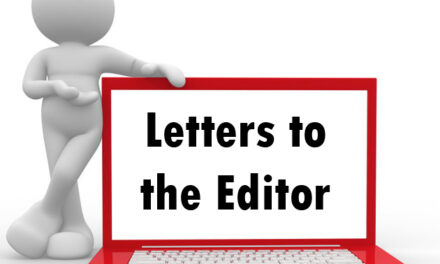Court Report

Judge John Chavez
The phrase ‘consider the source’ is often used as a caution about potentially bad information, or even as a warning to dismiss information entirely from a particular source.
Over the years, the intent of this column has been to provide some familiarity to court processes or to share personal insights.
In this month’s column, I hope to demonstrate how the application of ‘consider the source,’ as presented, can benefit someone in everyday life sorting through the flood of often-conflicting information available to each of us. I draw upon my courtroom experiences.
In court, the role of a jury in a jury trial or of a judge in a bench trial is to serve as the finder of fact. Evidence presented to a court serves as the basis in fact finding. Evidence comes before the court in a variety of means such as testimonial, physical, or documentary evidence.
A principle duty of the judge is to serve as a gatekeeper of evidence, which is deciding what evidence the judge or jury will consider in determining the facts of the case. For example, the evidence must be relevant to the matter before the court.
The finder of fact also gives evidence an appropriate weight. This is where ‘consider the source’ really comes into play.
Before I go any further, I should speak a bit about truthfulness and honesty. Witnesses who come before the court take a familiar oath to tell the truth, the whole truth, and nothing but the truth.
While there have certainly been situations where someone violated that oath, intentionally or unintentionally, I have found that witnesses tend to believe what they are saying.
Additionally, I have often found that two people who witness the same event can draw different conclusions from what they witnessed.
Neither party is lying to the court, rather they gleaned different points based on their physical position to the incident or based on their own experiences and/or knowledge.
Fundamental to our justice system and enshrined in our constitution is the principle of due process of law. Simply stated the adjudication of matters before the court is through the fair and impartial application of the law and established rules.
The opportunity for the opposing parties to cross-examine witnesses to find weakness in the testimony or to impeach their credibility is part of this process.
In our current time, information from a number of sources bombards us. In some instances, we view familiar sources of news or information.
However, we also have information simply placed in front of us in form of social media and advertising.
We have long had access to news sources with advertising, but what is new is the volume and the seemingly unending sources of information.
In my personal review of information, like in court, I apply some filters that I will share with you. These are not absolute mind you, but I believe helpful all the same.
Adjectives. Rather than strengthening an argument, I find that the overuse or inaccurate use of adjectives causes me to scrutinize the validity of a statement.
In the Army, I once sat on an accident review board. In the presentation of facts, ‘steep’ and ‘rocky’ where used to describe the terrain where the accident occurred. I had personal knowledge of the location and knew it to be a gravel driveway. Everything else presented was suspect.
Hearsay. Hearsay is a statement made without personal knowledge, but based on something heard or read. The courts have limitations on hearsay for good reason, and when considering information those reasons are good for you too.
An uncited reference or a third party statement are examples of hearsay. Information not from a direct source, typically, has less credibility.
Expert opinion. Verifiable training and experience typically support an expert opinion. People, myself included, have opinions on all manner of things. These opinions, while informed by exposure to knowledge and life experience, do not typically rise to the level of expert opinion.
In addition, an expert in one field is not necessarily an expert in another field; to fix your car, you would see a mechanic not a surgeon.
Oversimplification. Most issues have multiple perspectives. The more complex the issue, often the greater number of perspectives.
Social media often offers memes or, showing my age, what I call ‘bumper sticker’ slogans that tend to minimize the complexity of an issue.
Sensationalism and hyperbole. Grand statements that tend to appeal to emotion rather that have a factual basis.
I laugh a little whenever I hear the advertising claim, ‘this product will change your life!’
Does this mean nothing can be trusted? No, in fact, even in the examples given, you will find truth – maybe a little, maybe a lot. Parsing through and weighting that truth is key to understanding.
Even in your review of this column, you can take or leave whatever you like. Consider the source.
(Magistrate Judge John R. Chavez is the magistrate in Belen. He is a native of Valencia County and is a retired U.S. Army colonel.)

Judge John Chavez, guest columnist
Magistrate Judge John R. Chavez is the magistrate in Belen. He is a native of Valencia County and is a retired U.S. Army colonel.

















